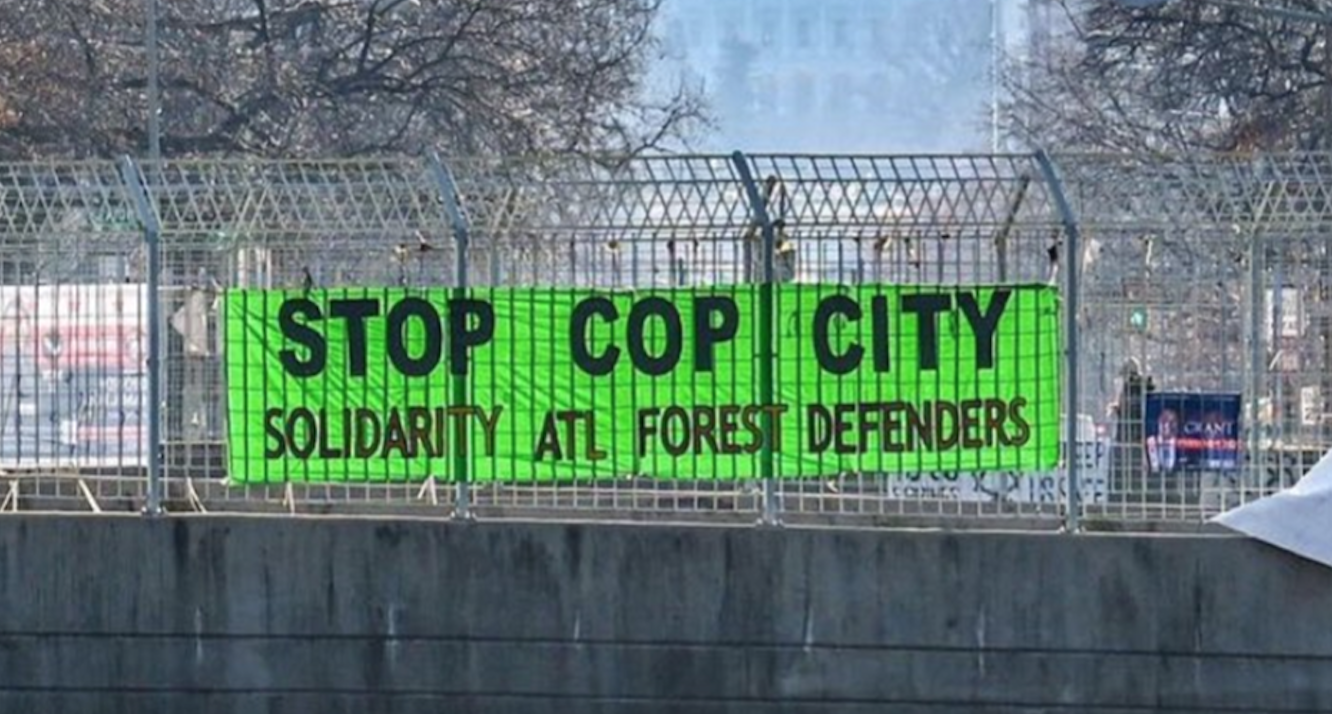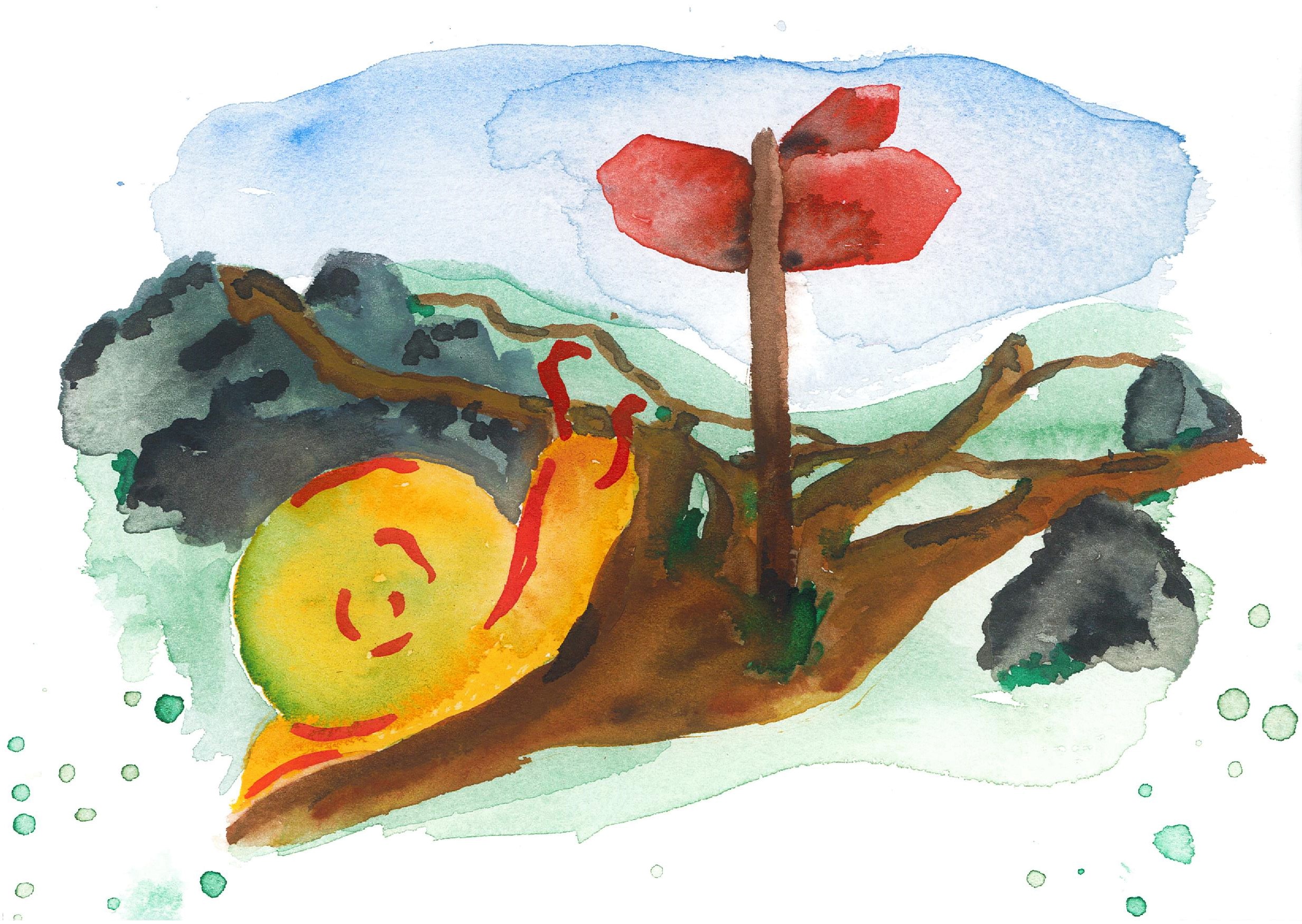At the end of August this year, I and a number of fellow ecosocialist and internationalist members of the Democratic Socialists of America — the largest U.S. socialist organization in decades and an increasingly powerful force in our country’s politics — launched a new, national caucus called Caracol DSA: the Degrowth Ecosocialist Caucus.
Our purpose is to advance DSA’s understanding of, and engagement with, both the degrowth framework and the international movement surrounding it in order to develop DSA’s ecosocialist vision further. Forming a national caucus in an organization as large as DSA is no small endeavor, so I wanted to take the time to explain why we made this collective dedication.
Caucuses are unofficial organizations of DSA members that exist at the local or national level. Members form them to advance their shared politics and/or priorities.
By contrast, official DSA entities include our more than 200 semi-autonomous chapters and their campaigns and substructures. Additionally, there is “National DSA,” which encompasses our biannually elected political leadership — the National Political Committee — our paid staffers, and all the unpaid national working groups, commissions, and committees that keep our organization functioning.
Despite their memberships tending to be small relative to DSA’s total membership of 80,000, caucuses have outsized power at the national level because most candidates for national leadership run on caucus slates.
One of the main trade-offs of forming and running a caucus is that the time spent doing so is not devoted to the “official” work of DSA. Despite that, caucuses can be helpful because they can incubate new ideas and perspectives, further develop members into comradely and principled organizers, and seed new ways of doing things that can positively influence DSA’s official work. Caucuses can also help make explicit where individual DSA members stand politically, rather than leaving such things implicit or relying on de facto or “shadow” caucuses — private alliances that can obfuscate or confuse collective work.
To understand why we formed a degrowth ecosocialist caucus, it is necessary to trace the history of ecosocialist organizing in DSA. Note: this is by no means comprehensive, and as a disclaimer, I joined the organization in 2018 — after DSA ecosocialists had already begun working together nationally.
The first major ecosocialist project, the national Ecosocialist Working Group (EWG), originated in conversations at the 2017 DSA National Convention, the biennial conference where chapter-elected delegates get together and vote to modify the structure of the organization, determine its direction for the next two years, and elect the NPC for that term. One major milestone of the EWG that I contributed to was DSA’s Green New Deal Principles, a document that I have pointed to ever since publication as a personal political lodestar, and a manifesto that powerfully defined an ecosocialist politics for our movement.
A second major milestone of the EWG was, oddly enough, its dissolution. At the 2021 National Convention, EWG leaders won an almost unanimous vote by the delegates assembled (including myself) to replace the EWG with a more agile, organization-spanning structure called the Green New Deal Commission (GNDC). The GNDC’s purpose would be to spearhead a national Green New Deal Campaign and support chapters doing GND work.
Ecosocialist leaders were successful in that effort; the incoming 2021-2023 NPC voted to adopt GND work as one of their top three priorities alongside labor and electoral organizing. Significantly, the GNDC has pivoted to launch a Build for Power campaign, through which it is “organizing local chapters, labor unions, and environmental justice coalitions to build green projects and expand public services for a Green New Deal.” The organizing effort brought thousands of DSA members into the ecosocialist fight and galvanized widespread awareness about the connection between capitalism and the climate crisis.
The GNDC continues to do incredible work supporting ecosocialist legislative, electoral, and labor campaigns across the country — and it should continue to do so, because it’s working. But ultimately, DSA has not meaningfully engaged with degrowth, even on the political education side of things — much less adopt a degrowth lens. For reasons that our points of unity detail, a posture that ignores open discussion about degrowth vis-à-vis socialism is problematic in our times and could ultimately be a liability for the success of the socialist project.
I first heard about degrowth on Twitter all the way back in 2015, through Giorgos Kallis, who was instrumental in bringing degrowth to the English-speaking world. When I first started conversations about degrowth in DSA, in 2018, I’m not sure even I understood entirely what it meant. Yet, something told me that there was something there, that degrowth was more than a nice-to-have: it was politically compelling. I was mostly ineffective at convincing others of degrowth’s importance in those early years, but I continued my studies on it notwithstanding.
During the pandemic, my interest in degrowth kept surging, so I decided to start a reading group in the late EWG. Together with several comrades from across the country, we read three books about degrowth, and they energized us. However, at the same time, this led to a sense of dread, knowing that DSA lacked explicit conversations about degrowth as well as a space where degrowth-aligned ecosocialists could organize.
I was confident both those things could be very beneficial for the organization to evolve its socialist analysis further, yet they were non-existent. Moreover, degrowth remained much-maligned in the U.S., with bad faith misinterpretations and straw men dominating the discourse on Twitter — attacks that emanated from across the political spectrum. Then, the concept rather shockingly exploded in mainstream/liberal discourse in outlets such as CNBC, CNN, the Financial Times, the New York Times, and other media — corresponding, or feeding, growth in Left Twitter discourse about degrowth.
Eventually, I reached the conclusion that a national caucus was the most appropriate path to advance good faith debate and learning about degrowth in our entire organization, as well as brainstorm how we might concretely apply it to DSA’s official activities.
While I could have chosen to pursue creating an official structure through, say, DSA’s International Committee as one comrade suggested, I elected for an unofficial structure — a national caucus. I chose this route first to secure our structural independence, given how controversial degrowth still is in our organization and second, because the official route would plausibly have had lower chances of success, buy-in, and sustainability.
So under the reliably sunny, inland California summer sky, I picked up the phone and began making the calls. It took a couple of years and could easily have failed, but through dedicated virtual organizing and the instrumental dedication of other “proto-caucus” cadre, we breathed life into Caracol.
As I once read some of DSA’s ecosocialist leaders write, and I paraphrase, ecosocialism is about applying a Marxist analysis with an understanding of climate (and, I would add, environmental/ecological) science. Crucially, climate science has developed in a way that points overwhelmingly to the necessity of degrowth to prevent the worst effects of the climate crisis, but DSA has thus far remained officially silent about that scientific insight.
This may simply be because we’ve had more pressing priorities, but it could also be the result of a lag time between the rapidly evolving climate science and our understanding of it. I think some comrades have remained silent about degrowth even if they may support it in private, because they don’t see it connecting with DSA’s work.I saw evidence of those tendencies during a several months-long — and ultimately unsuccessful — campaign to get NPC sign-off on a proposal to send a delegation to the recent 9th International Degrowth Conference in Zagreb, Croatia.
Fundamentally, we in Caracol believe that it is critically important to be explicit about the need for a degrowth analysis and to figure out how to apply it to socialist movement work. To be fully eco-Marxist, we argue, we have to center a complete, global understanding of our ecological material conditions. To do that, we must fully account for (1) the state of climate science, especially when there is strong evidence against green growth; and (2) ecological economics, which correctly starts from the premise that the Earth is finite, and planetary boundaries exist. We see Caracol DSA as a vehicle for facilitating such important work.
Caracol exists to do the following:
With the exception of disgraceful vitriol from 45 trolls we blocked on X/Twitter in the first 96 hours or so (!), reception to our formation has been quite strong and largely positive so far. During the first week, our X followership increased about 12-fold — and we were honored that prominent degrowth academics such as Julia Steinberger, Giorgos Kallis, and Jason Hickel retweeted our launch thread. Comrades in internal DSA spaces have expressed curiosity and asked questions to understand our politics better. Thus, the vast majority of hostility so far has been from bad faith, rightwing and fascist elements on social media — which must be at least partly due to the conservative unraveling of Twitter into its unhinged descendant, X.
We want to contribute to building the degrowth movement both here in the heart of empire, where it is still very underdeveloped compared to in Europe, and also abroad. Our interpretation of degrowth centers anti-imperialism and internationalism in addition to ecosocialism because degrowth, and global ecological justice, necessitate such a politics. As a result, we are especially enthusiastic to network and collaborate with degrowth-aligned organizations from the Global South and Europe alike. While not a project of our caucus, we welcome the fact that the leadership of DSA’s International Committee (IC) — DSA’s diplomatic organ — supported the DSA Zagreb degrowth delegation proposal by a comfortable margin; we hope to work with the IC on degrowth-related projects in the near future.
Speaking for myself and not the caucus on this point, a number of intellectual influences influenced me in co-creating our points of unity and the tendency we call “degrowth ecosocialism.” Prominent among them are Jason Hickel, Karl Marx, Kohei Saito, Vandana Shiva, Max Ajl, Michael Lowy, Sabrina Fernandes, Julia Steinberger, Giorgos Kallis, and Antonio Gramsci.
We encourage leftists, socialists, and communists everywhere to engage with our website and points of unity. We want to build solidarity, facilitate political education on degrowth, and carry out good faith, generative discussion on the topic with you — so if you care about preventing the worst impacts of the climate crisis and reversing ecological breakdown, please don’t hesitate to reach out.

This article explores the Defend the Atlanta Forest struggle and discusses how this fight relates to degrowth.

This piece will close the ten-part degrowth.info series on strategy, highlighting some of the key insights and charting the development of the strategy debate within degrowth. We will then offer some insights on how our own understanding of strategy and degrowth has changed over the last two years since we first urged the community to engage with this topic more. Finally, we will consider the p...

A degrowth strategy for societal transformation needs to combine several approaches, reflecting the plurality of degrowth as a movement. To support the myriad of bottom-up alternatives that are already out there, degrowth should put a special emphasis on strategies which build power outside of the capitalist system, be very cautious of those which merely seek to tame capitalism, but also integr...